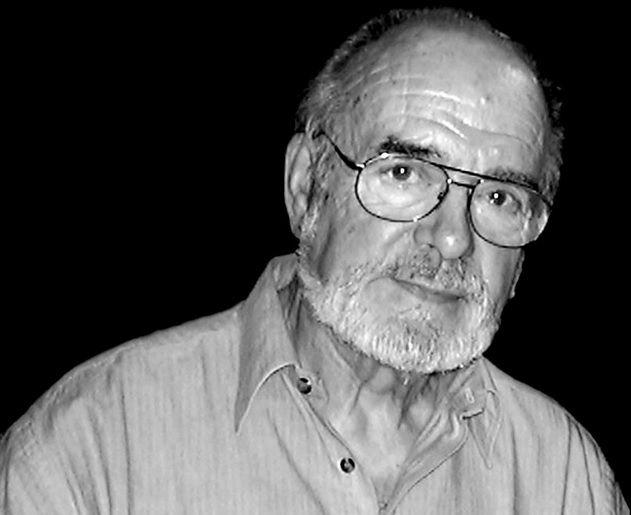
Barry Letts
Birthday: 26 March 1925, Leicester, Leicestershire, England, UK
Birth Name: Barry Leopold Letts
Barry Letts started his career as an actor. He began in repertory in York whilst also working for a local radio station in Leeds. After a chance meeting with BBC producer/director Rex Tucker, he start ...Show More

I think the programme lost its way in some of its later years, having more in common with show busin Show more
I think the programme lost its way in some of its later years, having more in common with show business, "light entertainment" or even pantomime--as exemplified by the costume worn by the Doctor which was covered in question marks. Doctor Who (1963) is not the character's name, and the implication is an alienation effect too far. Hide
The Daleks were never popular with directors. One director said to me, when I asked her if she'd lik Show more
The Daleks were never popular with directors. One director said to me, when I asked her if she'd like to direct a Doctor Who (1963), she said, "Yes, as long as I don't have to direct any tin cans". Hide
If you watch Doctor Who (2005) nowadays, there's music going on 98% of the time, and I find it infur Show more
If you watch Doctor Who (2005) nowadays, there's music going on 98% of the time, and I find it infuriating. Hide
[on gathering together intellectual people] They will tend to be liberal/left of centre, because tha Show more
[on gathering together intellectual people] They will tend to be liberal/left of centre, because that is the most intelligent position to take. Hide
[about Doctor Who (1963)] To a certain extent we set out to frighten the viewer, it's traditional. E Show more
[about Doctor Who (1963)] To a certain extent we set out to frighten the viewer, it's traditional. Everybody talks about how they watched, when they were little, "Doctor Who" over the top of the sofa or between their fingers or through the crack in the door. Hide
I think that the role of the monster in the frightening story is very much the role of the ogre and Show more
I think that the role of the monster in the frightening story is very much the role of the ogre and the giant in fairy stories. It's something to be frightened of, which is containable because it's obviously made-up. A child can accept a monster when it's quite clearly not something it's going to meet around the corner. Hide
What Terrance Dicks, my script editor, and I established (and what was picked up and developed by Ph Show more
What Terrance Dicks, my script editor, and I established (and what was picked up and developed by Philip Hinchcliffe with [Robert Holmes]) was an approach based on some definite principles deriving from the best of the past. We took the programme seriously. This is not to say that we didn't have fun making it, or that the writing had the po-faced grimness--or dullness--of some of the more dreary sci-fi offerings of the day. Hide
The BBC doesn't teach you how to be a drama producer. She just picks you up by the scruff of the nec Show more
The BBC doesn't teach you how to be a drama producer. She just picks you up by the scruff of the neck and drops you in it, if you take my meaning. Hide
One of the first things I did when I took over as producer on 20 October 1969 was to ask Audience Re Show more
One of the first things I did when I took over as producer on 20 October 1969 was to ask Audience Research for a breakdown of the "Who" audience--and I discovered that 58% of it was over the age of 15; in other words, the majority of our viewers were adults. Yet that also meant that 42% were children of all ages, the children that the programme was aimed at from the start, and we certainly couldn't let them down. So we tried to offer the stories on several different levels: first and foremost, we wanted good drama, solidly based on character; secondly, a fascinating science fiction idea and/or a theme with relevance to a real issue (such as the mining corporation versus the settlers in Doctor Who: Colony in Space: Episode One (1971), or the ecological background of Doctor Who: The Green Death: Episode One (1973)); thirdly, a cracking action adventure; and lastly, scary bug-eyed monsters for the younger children. Maybe we went too far sometimes--and Philip [Philip Hinchcliffe] and Bob [Robert Holmes went much further than Terrance [Terrance Dicks] and I did--but this is one of the core features of Doctor Who (1963). The stories also had to have integrity, in the total plotting and in the detail. Hide
Barry Letts's FILMOGRAPHY
as Actor (34)
 Barry Letts'S roles
Barry Letts'S roles

Apsley Cherry-Garrard









































